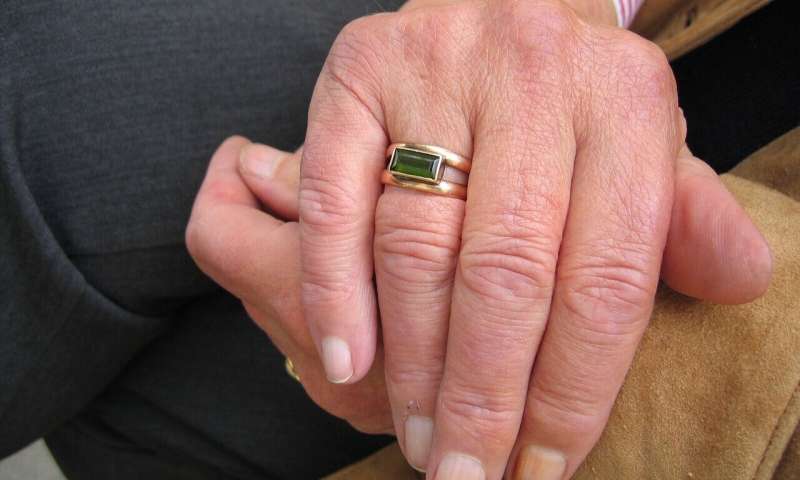Exploring thriving for older people living in nursing homes

A person-centered approach to care and assessment of care homes can help promote well-being by highlighting the individual's needs, desires, beliefs and abilities. This is shown in a new doctoral thesis.
The overall aim of Rebecca Baxter's thesis was to explore the meanings, expressions, measurements, and associations for thriving in nursing homes. The findings emphasize the importance of acknowledging the influence of the wider nursing home environment on understandings and experiences of thriving. Embodying a person-centered approach to the care and assessment of nursing home residents could help to promote thriving through illumination of the individual's needs, desires, beliefs, and capabilities. In this way, positive experiences within nursing homes not only exist, but have the potential to be assessed, enhanced, and personalized.
Demand for formal care in nursing homes has steadily increased in recent decades, prompting calls for exploration of positive and health-promoting concepts that support people not only to survive in older age, but to thrive. Thriving has been described as a holistic experience of place-related well-being resulting from interactions between the person and their lived-environment. The findings from this thesis have further revealed that thriving seems to be a relevant and meaningful phenomenon with shared understandings among nursing home residents and staff, providing valuable support for the ongoing assessment and application of thriving in international and cross-cultural nursing home settings.
The measurement scale for thriving (the Thriving of Older People Assessment Scale) appeared valid and reliable to facilitate proxy-rated measurement of thriving among nursing home residents, and the short-form TOPAS could have enhanced use for assessment of thriving in research and practice. Changes to the overall thriving scores between baseline and follow-up provides important information that may be used as a reference point for future measurements and comparisons of thriving and its associated variables over time. By exploring positive concepts like thriving it may become possible to develop more person-centered and health-promoting approaches to care for older people living in nursing homes.
Data were collected from Swedish and Australian nursing homes. Qualitative interviews were conducted with Australian nursing home residents (N=21) and staff (N=14), and were analyzed using phenomenological hermeneutical analysis and qualitative content analysis, respectively. Cross-sectional empirical data were collected from Swedish nursing homes in 2013/2014 (i.e., baseline) and 2018/2019 (i.e., follow-up). The baseline sample consisted of 4,831 proxy-rated resident surveys and the follow-up sample consisted of 3,894 proxy-rated resident surveys. Quantitative data were analyzed using a combination of descriptive statistics, validity testing, item response theory-based analysis, and simple linear regression.
More information: "Life is for living": exploring thriving for older people living in nursing homes. www.diva-portal.org/smash/record.jsf?pid=diva2%3A1553196&dswid=-5565



















